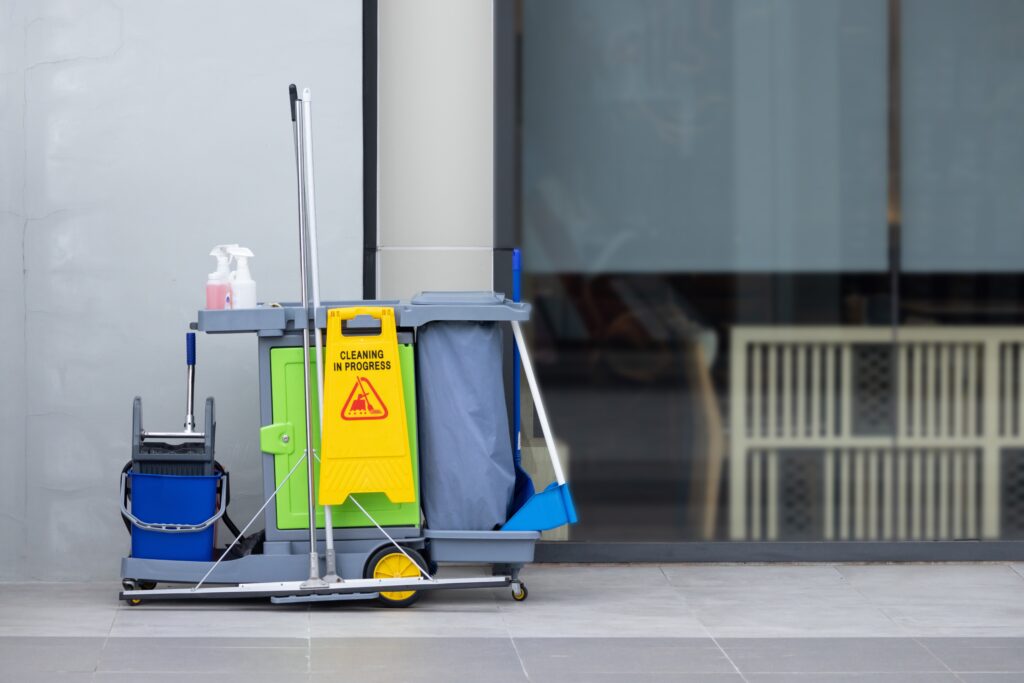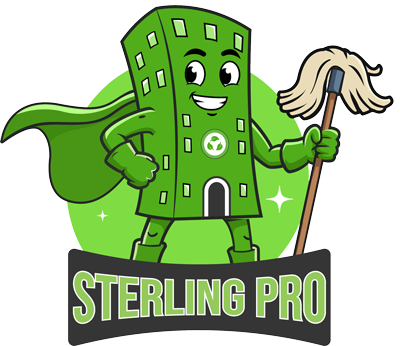What’s the Difference: Residential vs Commercial Cleaning?

You might think all cleaning services are the same. After all, a smudge is a smudge, and dust is dust. However, understanding what is the difference between residential and commercial cleaning reveals two very distinct services. Companies like Sterling Pro Cleaning specialize in tailoring these services to fit the specific demands of homes and large facilities.
The methods, tools, and standards for cleaning a family home are vastly different from those for a large office building. Knowing these differences helps you choose the right service for your needs. Let’s explore the key distinctions that separate these two types of cleaning and why the right choice matters. Reach out for house cleaning in Newtown Square.
Scope and Scale: The Big Picture
The most obvious difference between residential and commercial cleaning is the size and scope of the work. Residential cleaning focuses on living spaces such as homes, apartments, or condos. These are usually smaller areas with a predictable layout of bedrooms, bathrooms, a kitchen, and living spaces.
Residential jobs are personal and on a smaller scale. The focus is on creating a clean, welcoming, and comfortable environment for a family or individual. Most tasks are consistent from home to home, like vacuuming, mopping floors, dusting furniture, and cleaning bathrooms, with a few variations depending on the homeowner’s preferences.
Commercial cleaning covers a much broader range of properties. These include multi-story office buildings, retail spaces, restaurants, schools, and large industrial facilities. The scale can range from a small local shop to a massive corporate campus. Sterling Pro Cleaning manages this scale by bringing in trained teams, specialized tools, and detailed plans to ensure every area is covered efficiently. Look into commercial cleaning in Norristown.
This difference in size directly influences the time needed, the number of people assigned, and the equipment required. A single home might be cleaned by one or two people in a few hours. By contrast, a commercial office building can require a full team working overnight to handle everything from floors to restrooms to glass walls.
Frequency: How Often is Often?
How frequently a space needs to be cleaned is another major distinction. Residential cleaning services are often scheduled on a weekly, bi-weekly, or monthly basis. Some homeowners might request a one-time deep cleaning before a holiday, event, or move-out.
The primary goal of home cleaning is to maintain a comfortable and hygienic space. Homeowners usually take care of small tasks themselves between professional cleanings. Commercial spaces experience much heavier traffic, which makes frequent cleaning a necessity. Most businesses require daily cleaning to keep the environment safe and presentable for staff and customers. In high-use areas such as restaurants, gyms, or medical offices, some cleaning tasks—like sanitizing restrooms or disinfecting surfaces—happen multiple times during the day.
Sterling Pro Cleaning designs cleaning schedules that match the demands of each environment. From daily janitorial services to detailed quarterly deep cleans, their approach ensures that commercial clients maintain professional standards at all times.
Equipment: Tools of the Trade
The type of equipment and products used in each setting is also very different. Residential cleaners use tools suited to home environments: upright or canister vacuums, microfiber cloths, mops, and all-purpose sprays that are easy to purchase in stores. These are designed for smaller areas and less frequent use.
Commercial cleaning requires heavy-duty, industrial-grade equipment. Machines like floor scrubbers, wet/dry vacuums, burnishers, and large carpet extractors are essential for maintaining large spaces efficiently. Sterling Pro Cleaning relies on professional-grade equipment to handle thousands of square feet while meeting high performance and safety standards.
Commercial-grade chemicals are often stronger and sold in concentrated forms, requiring careful handling and proper dilution. These products are specially formulated to disinfect medical facilities, remove grease from restaurant kitchens, or handle stubborn stains in high-traffic areas.
Example Equipment Comparison:
| Category | Residential Cleaning | Commercial Cleaning |
| Vacuums | Upright or robotic vacuums | Large backpack vacuums, wide-area vacuums |
| Floor Care | Spray mops, string mops | Automatic scrubbers, high-speed buffers |
| Carpet Cleaning | Portable rental cleaners | Industrial-grade hot water extractors |
| Chemicals | Mild, multi-purpose sprays | Concentrated disinfectants, degreasers |
| Waste Disposal | Small household bins | Rolling trash carts, dumpsters |
Regulations and Standards: Playing by the Rules
Residential cleaning doesn’t have any formal regulations. Homeowners simply want their space clean to their personal standards. Commercial cleaning, on the other hand, is subject to strict rules and industry regulations. Offices, restaurants, and medical facilities all have standards set by health departments, OSHA (Occupational Safety and Health Administration), or other agencies.
Sterling Pro Cleaning trains its staff to follow these rules carefully. Their processes often involve record-keeping to show compliance with hygiene, safety, and documentation requirements. For example, hospitals and clinics require cleaners who understand how to sanitize surfaces to prevent cross-contamination and maintain a sterile environment.
Specialization: One Size Doesn’t Fit All
Residential cleaning is a fairly standard service. The main focus is on tidying, vacuuming, cleaning bathrooms, and dusting.
Commercial cleaning, however, is highly specialized. Different types of commercial spaces—schools, restaurants, healthcare centers, or warehouses—require completely different approaches. Sterling Pro Cleaning often provides teams that are specially trained for the unique challenges of each industry.
For instance:
- Medical cleaning involves biohazard safety and detailed sanitization protocols.
- Post-construction cleaning involves dust removal, debris handling, and detailing newly built interiors.
- Office cleaning focuses on maintaining workstations, floors, and meeting rooms without disrupting daily operations.
Time Constraints: Working Around the Clock
The timing of cleaning services is another big difference. Residential cleaning usually happens during the day, often when the homeowner is out, so the cleaning process is uninterrupted.
Commercial cleaning often takes place after business hours to avoid disrupting staff and customers. This means cleaners frequently work late nights, overnights, and weekends. Sterling Pro Cleaning organizes crews to clean efficiently during these hours, making sure spaces are spotless and ready for the next business day.
Training and Staffing: The Human Element
Residential cleaners often gain experience on the job. Small teams or individuals are common, and clients often develop personal relationships with their cleaner.
Commercial cleaning companies need a more formal structure. They hire cleaning technicians, assign supervisors, and perform regular inspections. Sterling Pro Cleaning has a strong hierarchy in place to ensure that large teams work together effectively and meet strict standards. Their employees receive training on topics like chemical safety, equipment operation, and workplace security.
Safety Considerations: Keeping it Safe
While safety matters in every setting, commercial cleaning involves more risks. Workers handle powerful chemicals, heavy machinery, and sometimes hazardous environments like construction sites or industrial facilities. Sterling Pro Cleaning ensures all employees use protective equipment and follow safety protocols to minimize risks.
Slip-and-fall prevention, biohazard awareness, and safe handling of cleaning solutions are integral parts of commercial cleaning safety programs.
Cost Considerations: Balancing the Books
Residential cleaning services are usually billed as a flat rate or by the hour, depending on the size of the home and scope of tasks.
Commercial cleaning is billed differently. It’s often priced per square foot with contracts tailored to the business. These agreements include not just labor but also specialized equipment, management oversight, and insurance. Sterling Pro Cleaning works with clients to develop cleaning plans that suit their budget while ensuring consistent results.
Conclusion
So, what is the difference between residential and commercial cleaning? It comes down to scale, specialization, and standards. Residential cleaning focuses on maintaining a tidy, comfortable home. Try house cleaning in King of Prussia. Commercial cleaning involves larger spaces, specialized tools, regulatory requirements, and frequent cleaning schedules.
Companies like Sterling Pro Cleaning bridge these two worlds by providing tailored services that meet the unique needs of both home and business environments. Whether you’re looking for a spotless living room or a safe and polished corporate office, understanding these differences ensures you choose the right service for the job. Contact us today!
